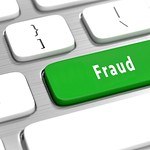How to Report Fraud

If you have been victimized by a fraud or scam or you have information about fraudulent activities, please report these incidents. Please provide any documentation of the crime, such as text messages, screenshots, voice messages, and your notes of encounters. Include email addresses, even though these can be disposable and telephone numbers can be spoofed. Although your case may not be investigated, analysts compare your case's information with similar cases and develop strategies to protect future potential victims.
Montgomery County Police Department (MCPD):
Please report scams to the MCPD’s non-emergency number at 301-279-8000. There is no web portal for reporting crimes. Also, please be aware that electronic mail is inherently insecure, so do not send sensitive data via email. Use of email does not assure the confidentiality of your sensitive data, nor does it constitute an MCPD incident report.
Maryland State's Attorney General's Office:
You can also report scams to the Maryland State's Attorney General's Office’s Special Prosecution Unit at 240-777-7300 or https://www.montgomerycountymd.gov/SAO/units/specialprosecution.html
Montgomery County Office of Consumer Protection (OCP):
You may file a complaint with the OCP at https://www.montgomerycountymd.gov/OCP/consumer/filing_complaints.html or call 240-777-3636. Please review OCP’s Frequently Asked Questions https://www.montgomerycountymd.gov/OCP/FAQs/index.html before filing.
Federal Bureau of Investigation:
You can report the incident to the Federal Bureau of Investigation (FBI) at https://www.fbi.gov/investigate/cyber#Respond-and%20Report and provide any information that may aid the investigation. The Baltimore Field Office covers the states of Maryland and Delaware and is located at 2600 Lord Baltimore Drive, Baltimore, MD 21244. The Baltimore Field Office can be reached at phone number (410) 265-8080.
Internet Crime Complaint Center (IC3):
The IC3 is a partnership between the Federal Bureau of Investigation (FBI) and the National White Collar Crime Center (NW3C). You can report internet crimes, including scams, to the IC3 through their website at https://www.ic3.gov/.
Department of Justice (DOJ), Criminal Division:
The DoJ lists the appropriate investigative agency for a variety of scams at https://www.justice.gov/criminal/criminal-fraud/report-fraud.
Federal Trade Commission (FTC):
The FTC protects consumers and prevents fraudulent activities. You can report the scam at https://reportfraud.ftc.gov/ or by calling their toll-free hotline at 1-877-FTC-HELP (1-877-382-4357).
Federal Communications Commission (FCC):
You may report Cell Phone Fraud, Mobile Wallet Fraud, Loss of Personal Data, Unwanted Robocalls and Texts, and Caller ID Spoofing at https://consumercomplaints.fcc.gov/hc/en-us/
American Association of Retired Persons (AARP):
A nonprofit organization providing resources and advocacy for people over the age of 50. They have a fraud watch network that allows members to report scams and fraud. You can report a scam to AARP by calling their fraud helpline at 1-877-908-3360 or filling out an online form at https://www.aarp.org/money/scams-fraud/.
Better Business Bureau (BBB):
The BBB is a nonprofit organization that aims to foster marketplace trust. Contact your local BBB office or file a complaint online at https://www.bbb.org/scamtracker. They can help investigate the scam and mediate the issue if necessary.
Consumer Financial Protection Bureau (CFPB):
The CFPB is another important organization where you can report scams related to financial products or services. Visit their website at https://www.consumerfinance.gov/complaint/ or call their toll-free number at 1-855-411-2372.
The Securities and Exchange Commission (SEC):
If the scam involves investment fraud, you can report it to the SEC by visiting their website at https://www.sec.gov/complaint/select or by calling their toll-free hotline at 1-800-732-0330.
Financial Industry Regulatory Authority (FINRA):
If you believe you've been defrauded or treated unfairly by a securities professional or firm, file a complaint with FINRA. If you suspect someone you know has been taken in by a scam, send FINRA a tip.
Fraud.org:
You can also report scams to Fraud.org, a project of The National Consumers League, which can be reached via email at [email protected], telephone at (202) 835-3323, and by mail at 1701 K St NW., Suite 1200, Washington, DC 20006, or by filling out an online form at https://www.fraud.org.
The Internal Revenue Service (IRS):
If the scam involves tax fraud, such as someone pretending to be an IRS agent or requesting payment of taxes through unusual methods, you can report it to the IRS by visiting their website at https://www.tigta.gov/hotline?type=IRSScamsandFraud or by calling 800-366-4484. You can report email scams to [email protected] and put "IRS Phone Scam" in the subject line.
Social Security Administration (SSA):
If the scam involves SSA personnel or payments, you should report the incident to the SSA Office of the Inspector General at https://www.ssa.gov/scam/ or call 1-800-269-0271.
Department of Homeland Security:
If the scammer impersonated the US Immigration and Customs Enforcement (ICE), US Citizenship and Immigration Services (USCIS), or Homeland Security agent, file your report at https://www.ice.gov/webform/ice-tip-form or call the Tip Line at 866-347-2423 or 1-866-DHS-2-ICE to report suspicious activity.
Cybersecurity and Infrastructure Security Agency (CISA):
(n.d.). Cyber Incident Reporting Form. Retrieved from https://www.cisa.gov/report.
Identity Theft Resource Center (ITRC):
The ITRC is a non-profit organization established to empower and guide consumers, victims, businesses, and the government to minimize risk and mitigate the impact of identity theft. You can share your experience at https://www.idtheftcenter.org/.
Health Care Fraud, Medicare/Medicaid Fraud, and Related Matters:
Contact the Department of Health and Human Services, Office of the Inspector General at 1-800-HHS-TIPS, or online at https://www.oig.hhs.gov.
Again, it's important to report scams so that authorities can investigate and take action to prevent others from falling victim to the same scam.

